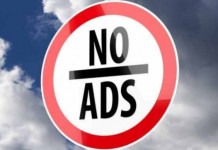 It’s no secret that I’ve lately enjoyed laughing at the travails of copyright troll Righthaven, whose efforts to build a business model out of copyright infringement incensed free speech advocates, copyright lawyers such as Marc Randazza, and eventually judges in several states.
It’s no secret that I’ve lately enjoyed laughing at the travails of copyright troll Righthaven, whose efforts to build a business model out of copyright infringement incensed free speech advocates, copyright lawyers such as Marc Randazza, and eventually judges in several states.
But I’ve come across an interesting article by reporter Eriq Gardner, who has the distinction of having been (briefly) sued by Righthaven himself, that takes a look at the issues behind Righthaven and considers the question of whether Righthaven had good reasons for doing what it did. And the answers might be surprising.
Beyond a simple matter of calling out the nasty copyright troll, Gardner places Righthaven’s actions in a broader context, pointing out the copyright concerns that led to the proposals of SOPA and PIPA, and the RIAA and peer-to-peer swarm lawsuits of recent years. And he also brings up the falling revenues of newspapers—the New York Times made $540 million in profit ten years ago, but now is only making $61 million. The newspaper industry has been desperate to look for ways to stay afloat. And that’s where Righthaven came in.
“Righthaven remains the vehicle for dealing with infringements on the Internet,” [Righthaven CEO Steve] Gibson told me recently. “Those who write poems, those who create movies, those who want to publish need to have a sense of protectability. If you want to have newspapers survive, protected from aggregators on the Internet, you’ve got to think about the vehicle through which that protection can occur. I don’t think anyone besides Righthaven has thought about that.”
Gardner summarizes the main problems with Righthaven’s approach as being disregard for the principle of fair use (which led to some court decisions potentially broadening that principle) and a lack of standing to sue.
When he talked to Righthaven CEO Steve Gibson, Gardner reported, Gibson suggested that the options available to people whose copyrights are violated these days are few, Righthaven had been formed as a possible solution to that problem.
“One of the questions for the article is why is it so difficult for copyright owners to hire competent copyright litigation counsel?” [Gibson] said. “There’s not a lot across the country. Definitely not like personal injury lawyers. You can’t go into the phone book and find a listing. Why is it this difficult? Why isn’t there more copyright litigation?”
The copyright lawyers Gardner talked to disagreed about whether Gibson was right, but did seem to agree that copyright litigation can be difficult or expensive. If you sue some blogger and win, but spend more money doing it than you’ll ever squeeze out of him, what have you really won?
The good news is, people have started thinking about the problem, even if the solutions they propose are wildly variant. Some favor new laws, others new business models, and there’s even an ongoing discussion at the U.S. Copyright Office concerning establishing a small claims circuit for copyright claims. But for the time being, copyright in the digital era is in a tricky place: widely flouted, hard to enforce, but still important for making sure people get paid for what they create. It remains to be seen how all these factors will be balanced in the end.

































It makes sense for people to be paid for what they write when a) other people want to read it and b) the same thing hasn’t been written already by somebody else. If copyright protection means every little publication hiring their own journalists to write the same things about the same events as every other journalist, then it’s a drag on productivity and deserves to go to the wall.
Eliminating wasted effort is what the Internet is all about.